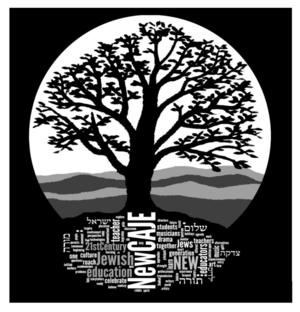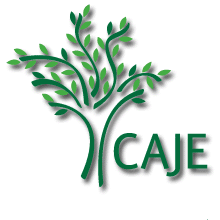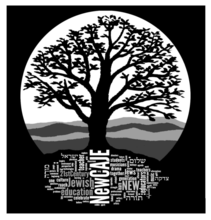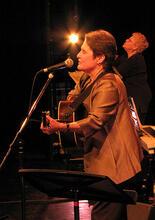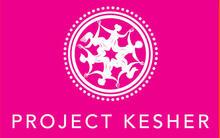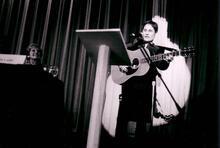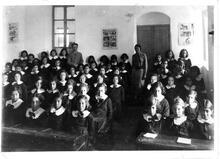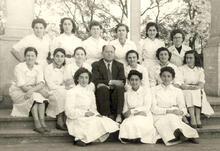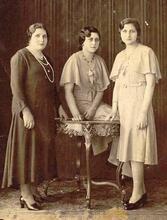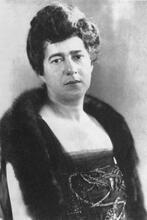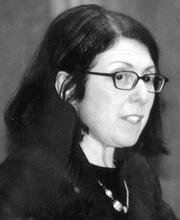CAJE
Beginning in 1976, CAJE—the Coalition for the Advancement of Jewish Education—brought together a diverse spectrum of the Jewish community in annual conferences for workshops in every aspect of the Jewish curriculum. Approximately 75 percent of the delegates were women, and many innovative concerns, such as family education and women’s issues, were introduced at CJAE. Soon after CAJE closed its doors for financial reasons, NewCAJE was formed to share ideas and innovations, offer professional development across denominational and workplace lines, and build a strong Jewish community. Like Jewish education in general, NewCAJE is 94 percent female as is committed to exploring women’s issues in the field, such as status, salary, and benefits.
Origins
While the post-Holocaust generation of Jewish educators was predominantly male, today the field of Jewish education is predominantly female. Growing enrollments in Hebrew schools in the late 1960s and early 1970s created a teacher shortage, with college students swelling the ranks of Jewish educators. They organized themselves into enthusiastic student groups such as the World Union of Jewish Students, whose American branch, known as the Network, created gatherings such as the Women’s Conference, which sparked the beginning of the Jewish feminist movement. They began to lobby for greater emphasis on Jewish education in the Council of Jewish Federations’ allocations and for a less top-down structure within the profession. In 1976, Cherie Koller-Fox and Jerry Benjamin, both students at the Harvard School of Education, called for and ultimately chaired a Jewish Students Network conference on Jewish education. Held in August 1976 at Brown University, it was called the “Conference on Alternatives in Jewish Education” because, in Koller-Fox’s words, “the basic conference philosophy was to offer as many of the alternative approaches to teaching in one particular area as possible, and to communicate that there was a wide range of choices available in Jewish pedagogy.”
The following year at Rochester, New York, a permanent organization called the Coalition for Alternatives in Jewish Education was formed and the initials CAJE now stood for both the organization and the conference. The annual conferences, dubbed by Seymour Rossel as “the Jewish Woodstock,” brought together a diverse spectrum of the Jewish community for multiple workshops on every aspect of the Jewish curriculum with many items on the Jewish communal agenda. The organizational name was changed to the Coalition for the Advancement of Jewish Education in 1987, reflecting the evolving position of the group in the Jewish organizational world.
Annual Conferences
Annually, the conference was convened on a university campus in rotating quadrants of the United States and twice, in 1988 and 1996, in Israel. With approximately 2000 delegates (75 percent of whom were women) in attendance at most conferences, participants chose from over 500 sessions of varying lengths, addressing contemporary and historical issues of pedagogy and content. Many innovative concerns such as family education and women’s issues were introduced at CAJE.
Many prominent women figures were introduced at the CAJE conferences. Among them were Debbie Friedman and Peninnah Schram. Debbie Friedman was a cantor, liturgical composer, and proponent of spiritual healing whose career began in Jewish summer camps; she became nationally known for her contributions to Jewish musical liturgy. Peninnah Schram, originally the head of the storytelling network, became the doyenne of Jewish American storytellers and has published numerous collections of these tales. The evening programs offered many of the famous names on the American Jewish and Israeli scene. A media center constantly reviewed the latest software and videos. The Educational Resource Center presented the contents of a Curriculum Bank. The Exhibit Center allowed teachers to peruse and buy textbooks, academic Judaica books, educational aids, and Jewish arts and crafts.
Other CAJE Offerings
During the year, CAJE sponsored regional conferences; published curriculum materials, often referring to the latest current events; organized fourteen Networks for members of common interests; and published a professional journal three times a year called Jewish Educational News. Jewish Educational News focused on continuity, a common area of concern, and columns entitled “Teen Experience” and “College Program.” Beginning in 2003, CAJE also sponsored an annual Early Childhood and Day School Conference for day school and early childhood teachers and administrators from across the denominational spectrum. CAJE continued to respond to grass-roots needs: A 1993 Task Force for Educator Empowerment underscored this commitment to building the profession. To do this, CAJE needed to “build a profession with high standards, proper compensation, retention of personnel, intellectual rigor, and creativity,” according to Rosalyn Bell, the CAJE publications coordinator.
“Limmud,” a multi-denominational Jewish learning conference, was held annually in England beginning in 1979, after three British educators attended that year’s CAJE conference (CAJE’s fourth) and created a local model of inclusive Jewish educational programming. Limmud maintained a reciprocal relationship with CAJE and expanded in both resources and geography: The week-long Conference grew from 100 to, in 2004, over 2000 participants attending 700 sessions, while Limmud developed and implemented other Jewish educational programs throughout Britain. Australia held its second “Limmud Oz” convention in 2001, and the first Limmud conference in the United States was held in New York in January 2005. Following special performances at Limmud 2010, Debbie Friedman passed away in January 2011.
From CAJE to NewCAJE
In January 2009, CAJE informed its members and supporters that it was facing significant financial challenges and would not be able to hold its annual conference. One month later, CAJE announced that, due to past debts and the economic crisis, it would close its doors at the end of February 2009. In its final months, CAJE worked with the Jewish Education Service of North America (JESNA) to ensure that the needs of Jewish educators would continue to be met and that the legacy of CAJE would be preserved.
NewCAJE was founded in February of 2009 by Jerry Benjamin (d. 2019) and Rabbi Cherie Koller-Fox, the original founders of CAJE, following the bankruptcy of CAJE and the retirement of the executive director. With 400-500 educators from 42 states and several countries, the first NewCAJE conference was held in Boston in 2010 to share ideas and innovations, offer professional development across denominational and workplace lines, and build a strong Jewish community. Subsequently, yearly NewCAJE conferences with a reduced staff moved from one coast to the other. In 2020, because of the Covid-19 pandemic, the conference was held online for an entire month, attracting 900 educators with over 450 academic sessions, full musical offerings, and a Summit on the Future of Jewish Education, attracting a new generation of Jewish educators to the organization, its tutorials and online tools, and a new website: www.newcaje.org.
NewCAJE, like Jewish education in general, is 94% women and is committed to exploring women’s issues in the field, such as status and salary and benefits.
Bell, Rosalyn [publications coordinator of CAJE]. Conversations and e-mail with author, July 1, 1996, September 11, 1996, September 13, 1996, and “The Greening of a Dream.” Outlook Magazine (Summer 1994).
Benjamin, Jerry, and Cherie Koller-Fox. Interviews by author, July 1995, September 5, 1996, and “Reflections on a Movement a Making.” Sh’ma 8–156 (September 1, 1978).
Flexner, Paul. Conversations with author.
Koller-Fox, Cherie. “The Empowerment of the Jewish Teacher: Founding of the Coalition for Alternatives in Jewish Education.” Studies in Jewish Education. Vol. 7, Origins: The Beginnings of Jewish Educational Institutions. The Hebrew University of Jerusalem: The Melton Centre for Jewish Education in the Diaspora (1995): 213–258.
Leibovitz, Liel. “A Marathon of Meaning.” The Jewish Week, January 5, 2005.
Rosenblatt, Gary. “A New Boost for Jewish Education.” Baltimore Jewish Times, July 4, 1980.
Rossel, Seymour. “CAJE: A Short History.” CAJE 20 1995 Program Book (1995): 32–38.

